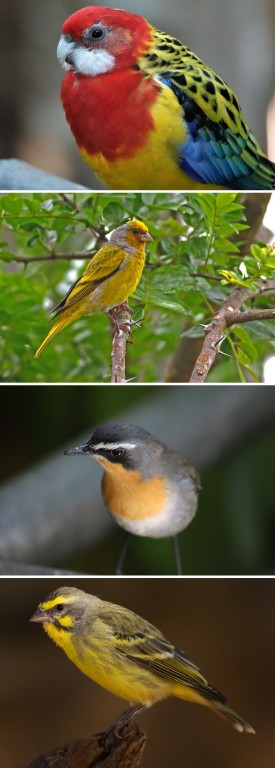About Birds of Eden
Birds of Eden is a unique single-dome free-flight bird sanctuary (the World’s largest) that provides a home to over 1,500 birds from over a 120 species. Our award-winning sanctuary is a haven for birds previously caged or kept as pets, allowing them to live freely in a vast, natural habitat. Visitors can enjoy the beauty and diversity of both exotic and African bird species while observing their rehabilitation and integration into a natural environment. Birds of Eden is part of the South African Animal Sanctuary Alliance (SAASA), sister to Monkeyland, Jukani Wildlife Sanctuary, and the Hidden Forest Wildlife Sanctuary.
Our Vision
To create a sanctuary where birds live freely, with dignity and in harmony with nature, while raising awareness about the vital importance of wildlife conservation. We strive to inspire a deep understanding that wild animals are not pets - captivity strips them of their instincts, freedom, and natural well-being. By allowing wildlife to live as they are meant to - wild and free - we promote a future where all species can thrive in natural habitats.
Our Mission
Birds of Eden strives to provide a forever home for birds that have lived in captivity, ensuring they experience the joy of free flight in a natural environment. Through education and conservation efforts, the sanctuary aims to inspire visitors to make more informed and ethical choices regarding wildlife.
Our Birds
The sanctuary is home to a diverse range of bird species, including parrots, hornbills, turacos, ibis, cranes, flamingos, ducks, and geese. Many of these birds have been rescued from difficult conditions, such as being caged, injured in the wild or maimed through practices like pinioning. Each bird undergoes a rehabilitation process, learning to socialize, fly, and thrive before being fully integrated.
Sanctuary Vegetation
The Birds of Eden sanctuary is nestled within a restored Afromontane forest, featuring a rich diversity of herbs, shrubs, and towering canopy trees that create a natural, layered environment. This vegetation closely mirrors the birds' native habitats, providing them with food, shelter, and space to thrive. Originally a partial dumpsite and dairy farm, the restoration of this area took five years of dedicated effort before the sanctuary officially opened on December 15th, 2005. Today, it stands as a thriving forest ecosystem, offering a safe and natural home for its bird residents.
Why You Should Visit Birds of Eden
- Free-Flight Sanctuary: Experience a vast sanctuary where over 1,500 birds fly freely, living in an environment that mirrors their natural habitats.
- No Cages, Ethical Tourism: Unlike zoos, Birds of Eden provides a cage-free experience and follows strict no-touch policies to protect the well-being of the birds.
- All-Weather Facility: Rain or shine, you can visit any day of the year, as the sanctuary is designed to be enjoyed in all weather conditions.
- Family Friendly: A perfect outing for families, where visitors of all ages can learn about wildlife conservation and enjoy the beauty of nature.
- Photographer’s Paradise: With its lush forest setting and diverse bird species, Birds of Eden offers endless opportunities for stunning photography.
- Open Every Day: No need to book - simply visit any day from 8 AM to 5 PM, including holidays.
- Highly Rated by Visitors: Guests rave about their experiences, with many describing the sanctuary as "breathtaking," "a must-see," and "an unforgettable birding experience" in reviews online.
A visit to Birds of Eden is more than just a walk-through nature - it’s a meaningful journey into the world of wildlife conservation.



